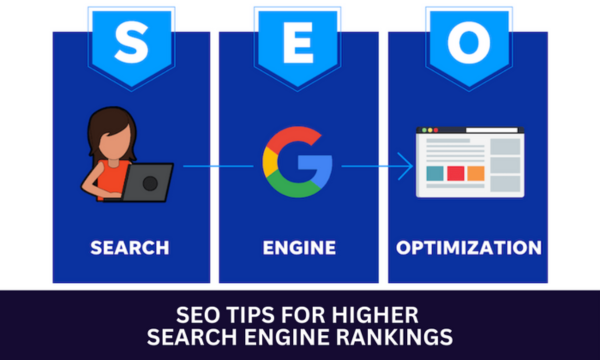In the digital age, where information is at our fingertips, search engines like Google play a pivotal role in connecting users with relevant content. If you’re a website owner or content creator, you understand the importance of appearing on the first page of search engine results. Achieving higher search engine rankings is not just about keywords and backlinks; it’s also about the quality and relevance of your content. In this blog post, we’ll delve into the power of content in SEO and provide you with actionable tips to boost your search engine rankings.

The Role of Content in SEO
1. Quality Content Attracts Users
High-quality, informative, and engaging content naturally attracts users. When your content fulfills their needs, they are more likely to spend time on your website, explore more pages, and return for future visits. Search engines recognize these user behaviors as positive signals.
2. Content Provides Keyword Opportunities
Keywords are the foundation of SEO. Well-crafted content allows you to naturally incorporate relevant keywords and phrases, signaling to search engines the topics your website covers. Proper keyword research ensures you’re targeting terms that align with user intent.
3. Content Drives Organic Traffic
Search engines value fresh and relevant content. Consistently publishing new, valuable content increases your website’s visibility in search results. It provides more entry points for users to discover your site and its offerings.
4. Content Supports Link Building
High-quality content is link-worthy. When other websites find your content valuable, they may link to it, improving your website’s authority and credibility. Quality backlinks from reputable sources positively impact your search engine rankings.
SEO Tips for Content Optimization
Now that we’ve established the significance of content in SEO, let’s explore actionable tips to optimize your content and improve your search engine rankings:
1. Keyword Research
Begin with thorough keyword research to identify relevant keywords and phrases related to your content. Use tools like Google Keyword Planner and SEMrush to discover high-value keywords with reasonable competition.
2. Create High-Quality Content
Focus on creating content that provides genuine value to your audience. Aim for well-researched, informative, and engaging articles, blog posts, or pages. Content that solves problems or answers questions tends to perform well.
3. Optimize On-Page SEO
Pay attention to on-page SEO elements:
- Use your target keyword in the title, headings, and subheadings.
- Include relevant keywords throughout the content.
- Optimize meta titles and descriptions for search engine visibility.
- Utilize descriptive image alt text.
- Structure content with a clear hierarchy.
4. Mobile-Friendly Design
Ensure that your website and content are mobile-friendly. A responsive design that adapts to various screen sizes is essential for ranking well in mobile search results.
5. Consistent Publishing
Establish a content publishing schedule and stick to it. Consistency demonstrates your commitment to providing valuable content. Search engines favor websites that regularly update their content.
6. Internal and External Links
Incorporate internal links to other relevant pages on your website. This helps users navigate your site and improves SEO. Additionally, include authoritative external links to reputable sources that enhance the credibility of your content.
7. Monitor Performance
Use web analytics tools like Google Analytics to track the performance of your content. Monitor metrics such as organic traffic, click-through rates, and bounce rates. Adjust your content strategy based on the insights you gather.
8. Engage Your Audience
Encourage user engagement by allowing comments, responding to them, and fostering discussions around your content. User-generated content, such as comments and reviews, can enhance your website’s relevance.
Conclusion
The power of content in SEO cannot be underestimated. High-quality, relevant, and well-optimized content serves as the cornerstone of a successful SEO strategy. By consistently delivering valuable content that resonates with your target audience and follows best SEO practices, you’ll improve your search engine rankings and establish a strong online presence. Remember that SEO is an ongoing effort, and regularly updating and optimizing your content will help you maintain and enhance your search engine visibility.
